Exeter Riddles 68 and 69
MEGANCAVELL
Date: Mon 16 Oct 2017Matching Commentaries: Commentary for Exeter Riddles 68 and 69
A quick note about this post: You may be wondering why I’m doing two riddles at once, and I’ll certainly explain more in my commentary. But for now, be aware that the division of this particular riddle or pair of riddles is very controversial! Krapp and Dobbie’s edition of the Exeter Book numbered the first two lines as Riddle 68 and the final as Riddle 69, but many editions now squash them together as one. More to follow! For now, enjoy:
Ic þa wiht geseah on weg feran;
heo wæs wrætlice wundrum gegierwed.
[Riddle 69] Wundor wearð on wege; wæter wearð to bane.
I saw a creature travel on the way;
it was miraculously adorned with wonders.
[Riddle 69] There was a wonder on the wave; water turned to bone.
Notes:
This riddle appears on folio 125v of The Exeter Book.
The above Old English text is based on this edition: Elliott van Kirk Dobbie and George Philip Krapp, eds, The Exeter Book, Anglo-Saxon Poetic Records 3 (New York: Columbia University Press, 1936), page 231.
Note that this edition numbers the text Riddle 66: Craig Williamson, ed., The Old English Riddles of the Exeter Book (Chapel Hill: University of North Carolina Press, 1977), page 106.
Tags: anglo saxon exeter book riddles old english solutions riddle 68 riddle 69
Related Posts:
A Brief Introduction to Riddles
Commentary for Exeter Riddles 68 and 69
Exeter Riddle 83
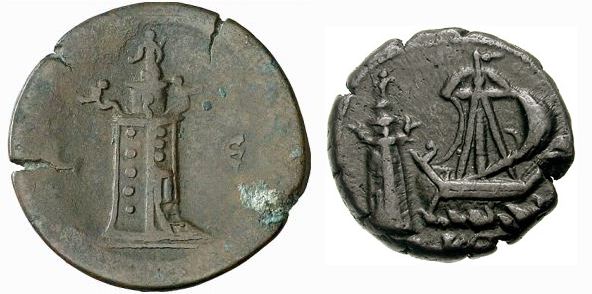
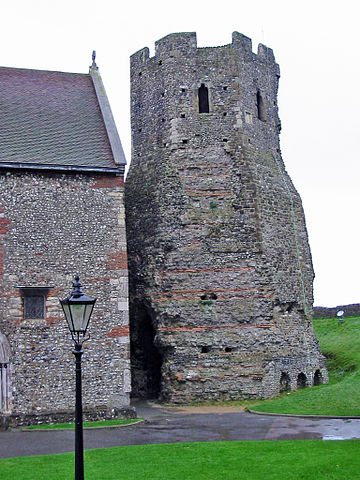
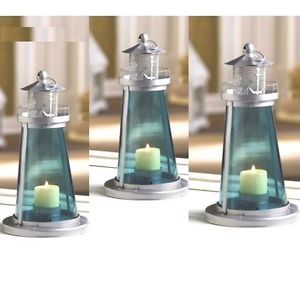

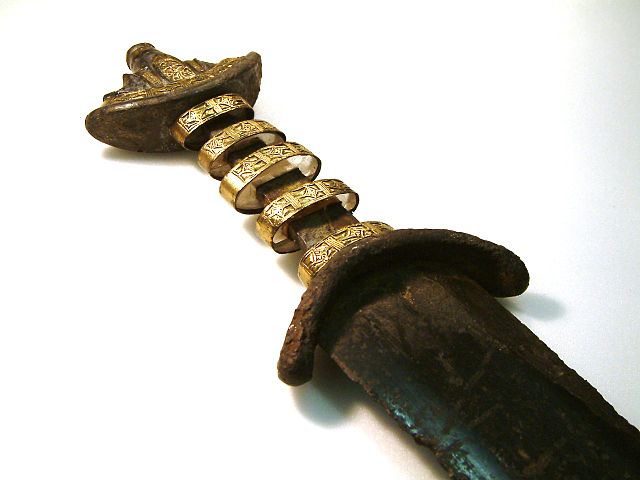
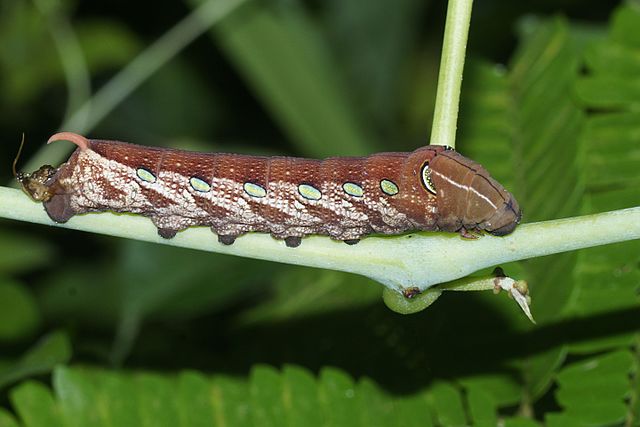
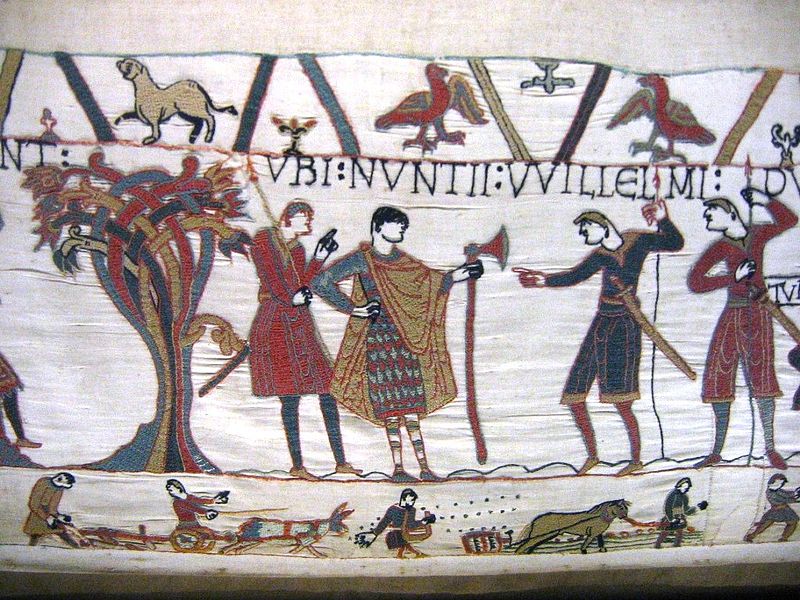
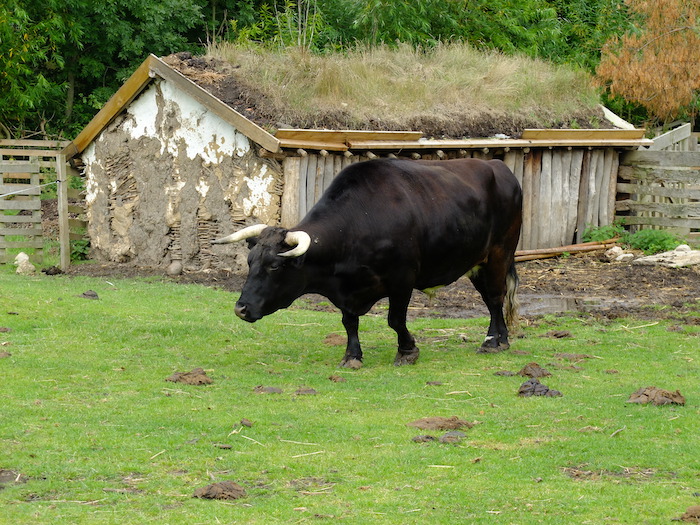
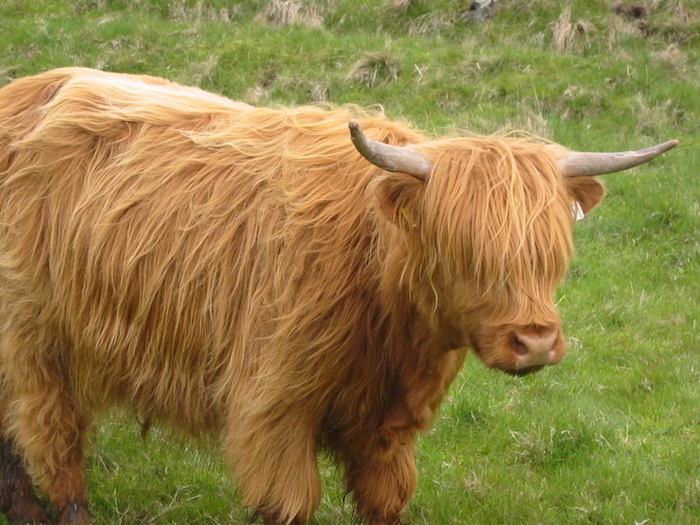
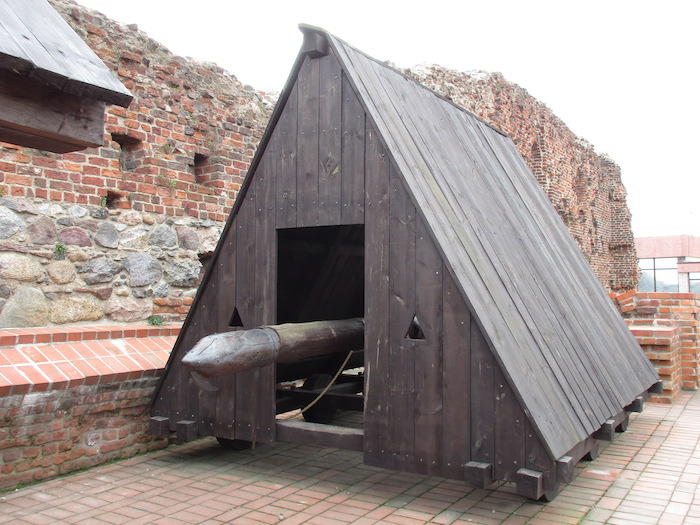
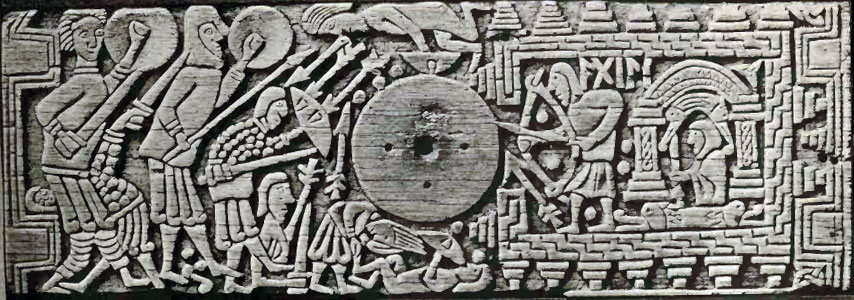
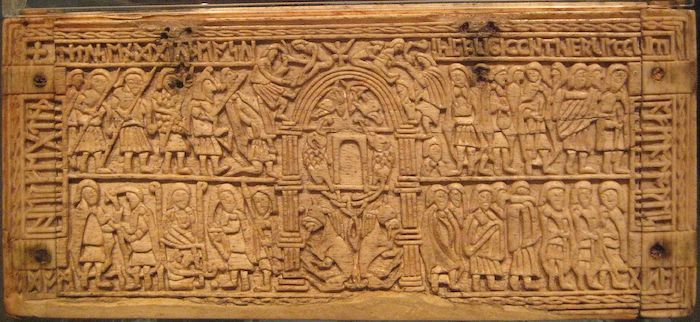
Commentary for Exeter Riddles 68 and 69
MEGANCAVELL
Date: Mon 23 Oct 2017Matching Riddle: Exeter Riddles 68 and 69
From previous posts, you may now be getting the sense that the final run of riddles in the Exeter Book is where everything has gone to pot. You’re not wrong. As I explained in my commentary for Riddle 63, there’s a rather large and irritating hole that has damaged multiple works toward the end of the manuscript.
That’s not, however, the problem we have here. The problem with Riddles 68 and 69 and deciding whether they’re one poem or two is totally the scribe’s fault! Because, you see, there’s punctuation in the manuscript that suggests Riddle 68 ends at gegierwed, and an enlarged initial W on Wundor that implies Riddle 69 is the start of a new poem. I don’t have a copyright-free photo to share with you, so here’s my finest attempt at an artistic rendering:
What, what, WHAT do we do with this information? Well, let’s remember that this isn’t the first time we’ve been in this sort of situation. Riddles 47 and 48 present us with the complete opposite problem. In that part of the manuscript, we have no punctuation to separate out what – from their content – seem to be two different poems. But they’re run together on the manuscript page, and, where we’d expect a punctuation mark like the one at the end of Riddle 68 (and most riddles), we have nothing.
There’s also the matter of Riddles 1-3, which are set out on the page like separate poems, but all deal with similar subjects. Some editors think they’re one big riddle in three movements. Some think they’re three separate poems that have been placed near each other on purpose.
And the list of problem riddles goes on.
The long and the short of it is…the layout of the riddles (and other poems in the Exeter Book) can be a bit messy! In fact, Mercedes Salvador-Bello argues that the assembling of these particular riddles and the ones around them “was done in a rather careless way” and “the compilers increasingly resorted to opportunistic improvisation in place of planned arrangement” (page 398). Whether there’s any sort of method to this mess is a matter for the manuscript specialists, and not little ol’ me.
But I’ll allow myself to have opinions about the poetic content…because the only thing I love more than poetry is having opinions.
When it comes to Riddles 68 and 69, I’m going to side with the editors who read the poems as one. The sense of wonder and the travelling on ways/waves go quite nicely together – so nicely, that Craig Williamson suggests this variation of on weg (line 1b: on the way) and on wege (line 3a: on the wave) is the “trick” of the riddle (page 335). And that beautiful final half-line, wæter wearð to bane (water turned to bone), explains the whole wondrous situation very tidily. Ice! (Old English Is!)
Photo (by yours truly) of an iceberg at Jökulsárlón in Iceland.
The specific form of ice is up for grabs. The riddle is often solved as Iceberg, hence the dramatic shot above. There is, after all, another iceberg riddle in the Exeter Book: do you remember the monstrous creature of Riddle 33? They’re quite different poems on the whole, but there is some verbal overlap, as we can see in Riddle 33’s first line:
Wiht cwom æfter wege wrætlicu liþan
(Something wondrous came moving over wave)
Interesting.
Leaving Iceberg to one side, John D. Niles has also suggested Frozen Pond (Old English Is-mere) (page 143), and Patrick J. Murphy recently made quite a good case for Icicle (Old English Gicel) (page 8). Murphy pointed out the riddle tradition’s “penchant for defamiliarizing common objects,” and noted that icicles and bones are associated in folk riddles (page 8). This makes sense, of course, since they have a similar shape! Or as Murphy puts it (rather nicely, I think): “the elongated, rodlike forms of ice […] would most readily activate the image of ossification” (page 8). If we’re worried about the travelling of those elongated ossificatory icicles (say that three times fast!), we needn’t be. Icicles are still made of water, after all, and the travelling could refer to the way they extend and grow longer over time.
Photo (by Barfooz) from Wikimedia Commons (licence: CC BY-SA 3.0).
Anywho, back to the issue of one vs two riddles: it’s also worth pointing out that – if we don’t solve Riddles 68 and 69 together – the solution to Riddle 68 is a lot harder to come by. A creature travelling on a path who’s miraculously adorned could be…a lot of things. We definitely need more to go on than that! Not to mention the fact that nearly the exact same lines that make up the whole of Riddle 68 are found earlier in the Exeter Book as the start of Riddle 36:
Ic wiht geseah on wege feran,
seo was wrætlice wundrum gegierwed.
(I saw a creature travel on the way/wave,
she/it was miraculously adorned with wonders.)
This particular riddle is pretty messy too, and may represent the smooshing together (that’s the technical term, I believe) of two separate riddles. The best solution seems to be Ship – so there’s definitely a thematic connection between water, ice and sea travel.
Riddle 68 seems to be drawing on formulaic language about this sort of thing. It’s possible, of course, that the scribe copying out the riddle simply didn’t finish it, and went straight on to the next one. When I’m tired, my eyes skip across the page all the time. These things happen.
Either way, though, Riddle 69 can certainly function on its own:
Wundor wearð on wege; wæter wearð to bane.
(There was a wonder on the wave; water turned to bone.)
In fact, it’s a very nice example of the riddle form in brief. This riddle describes something that should be recognizable, but from a strange perspective. Like metaphors, which represent one thing in terms of another, riddles ask us to think outside the box. Here, the riddle asks how water can become bone. It doesn’t say "ice is bony" (not the most eloquent of metaphors!), but instead demands that we make the logical leap from water-turned-bone to ice. What a nice little example of riddling.
And look at all that alliteration! We have no fewer than FIVE "w" words in one line! In fact, apart from the prepositions, bane (bone) is the only word in the line to start with a different letter. The sounds of these letters almost resemble the wobbly flowy-ness of water solidifying into a sharp bursting "b." That’s not the most articulate sentence I’ve ever written, but hopefully you get a sense of what I mean. If not, try reading the line out loud to yourself!
Please do this in public. Or in your workplace. Or maybe in a silent reading room in a library. Are people looking at you funny yet? Then my work here is done.
References and Suggested Reading
Murphy, Patrick J. Unriddling the Exeter Riddles. University Park, PA: Pennsylvania State University Press, 2011, esp. pages 8-9.
Niles, John D. Old English Enigmatic Poems and the Play of the Texts. Turnhout: Brepols, 2006.
Salvador-Bello, Mercedes. Isidorean Perceptions of Order: the Exeter Book Riddles and Medieval Latin Enigmata. Morgantown: West Virginia University Press, 2015, esp. pages 398-9.
Williamson, Craig, ed. The Old English Riddles of the Exeter Book. Chapel Hill: University of North Carolina Press, 1977.
Tags: anglo saxon exeter book riddles old english solutions riddle 68 riddle 69
Related Posts:
Commentary for Exeter Riddles 1-3
Commentary for Exeter Riddle 33
Commentary for Exeter Riddle 36
Commentary for Exeter Riddle 47
Commentary for Exeter Riddle 48
Commentary for Exeter Riddle 63